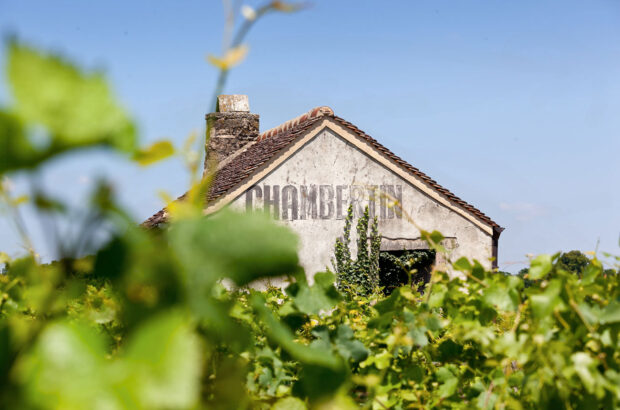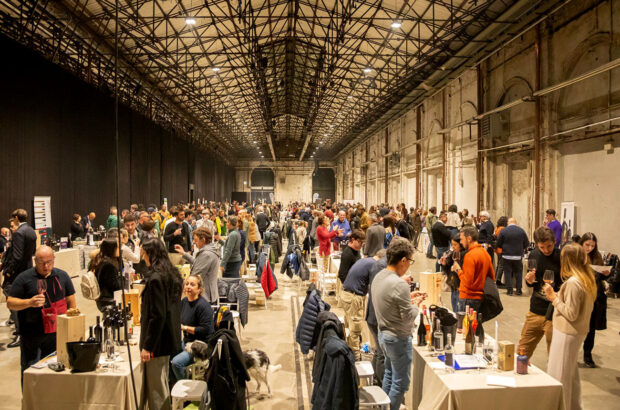Pauly Vandenbergh, a proud Wirangu and Kokatha man, is the director and co-owner of Munda Wines, one of Australia’s first indigenous wine brands.
The label was launched in 2022 with co-founder and wine industry veteran Damien Smith, and it now is about to release four new wines.
However, there is plenty more to these wines than what’s in the bottle. The beverage is just one piece of the bigger picture. ‘It’s a storytelling business, we are sharing 65,000 years of living history one glass at a time,’ said Vandenbergh.
The continent of Australia, as it is known in Western geography, comprises more than 500 different First Nations countries, each with its own unique living culture, language, climate and landscape that dates back as far as 65,000 years. In addition, the soil geology is some of the oldest on the planet.
As any wine enthusiast will attest, the concept of terroir is what makes a bottle of wine unique. The wine is a vessel that translates the language of its terroir, soil, climate, history and people into liquid conversation with the drinker. Australia’s wine identity has been filtered through the lens of European terroir, dismissing the custodianship that existed for thousands of years before the introduction of Vitis vinifera.
Vandenbergh and Smith met at the Port Adelaide Football Club, where Vandenbergh was the director of Aboriginal programmes until 2020. ‘Damien and I were talking about terroir, what it is and what it means. He asked me what the word was in my language, and I said: “munda”. Munda means country – and country is everything.’
While the word munda is in the Wirangu and Kokatha languages, each of Australia’s different First Nations has its own language. Munda Wines is about producing great wines of place while facilitating stories and sharing these cultures.

Pauly Vandenbergh (left) and Damien Smith. Credit: Dragan Radocaj
Regional portfolio
Vandenbergh added: ‘We are a wine company, but it’s a bigger platform than that. We want our wines to drive conversations, getting people to think and talk differently at the dinner table or the barbecue. The wines are storytellers and have the ability to increase the knowledge, awareness and respect of the First Nations cultures throughout all of the Australian wine-producing and consuming regions, not just where I am based.’
Vandenbergh grew up on the far west coast of South Australia, while Smith is based in the Adelaide Hills. The current wines in their portfolio are from established wine regions throughout Australia, including a Syrah from Kaurna Country (Blewitt Springs), a Grenache from Ngadjuri + Peramangk Country (Barossa Valley) and a Chardonnay from Walgalu Country (Tumbarumba).
The new releases scheduled for July include a Chardonnay from Wadandi Country (Margaret River) and a Pinot Noir from Wurundjeri Country (Yarra Valley). There will also be a Syrah from Djab Wurrung Country (Grampians) and a Cabernet from Bodaruwitj Country (Padthaway).
‘We want to produce world-class wines and, through those wines, tell the complete picture of Australia’s landscape and history,’ said Smith.
As such, each region is represented by the one grape variety that the pair views as the region’s hero. Fruit is purchased from growers in each region, building on Smith’s long-standing relationships in the wine industry. ‘Within the industry, there are people you trust. It is all about conversations and connections with the growers,’ he said.
Winemaking is currently overseen by Renae Hirsch at Chalk Hill. However, both Vandenbergh and Smith are hands-on. ‘We are both knee-deep in the winemaking, in terms of producing wine styles that we like, and that reflect what Munda is about,’ explained Smith.
Future plans
Munda Wines is self-funded, so, understandably, the brand has started as a part-time project for the pair, but there are big plans for the future.
‘The driving force behind Munda is more than wine; it’s about creating opportunities for young indigenous people and spreading an understanding and education of First Nations culture,’ said Vandenbergh.
As the business grows, immediate priorities include spending time with the traditional owners of each First Nations country. ‘We’ve not taken a dollar out of the business yet. We are slowly building the business, but it takes time and resources to visit the different regions and spend time there,’ said Vandenbergh.
‘As soon as we have the capacity for me to travel and spend time in each region, I want to do so. What colours are important to the Wadandi people? Let’s put those on the labels. What else can we share through the artwork? How do we give the voices to the traditional owners to help them on this level?’
Other winemaking goals include working with indigenous ingredients and experimenting with native trees as an oak alternative. ‘How can we add our foods, herbs and fruits into the process? Can we use the mulga tree [Acacia aneura] – from which we make all our spears, boomerangs and instruments – as an alternative to the oak barrel?’ said Vandenbergh. ‘Again, these experimentations will all take time, research and cash flow,’ he added.
In terms of social impact, the aim is to have a full-time indigenous winemaker in the business as soon as possible and to continue removing the barriers to entry into the industry.
Vandenbergh’s current responsibilities include being the national diversity talent manager for the AFL (Australian Football League), the co-founder of not-for-profit Tjindu Foundation, owner of Wanna Mar tuna fishing and his First Nations consultancy.
‘Everything that I’ve created and that I work on is to impact and empower our people and to help the industry. Australia has only ever had one indigenous winemaker, the wonderful Sue Bell. I want to create opportunities for young people, and wine is the vehicle for changing the narrative,’ said Vandenbergh.







